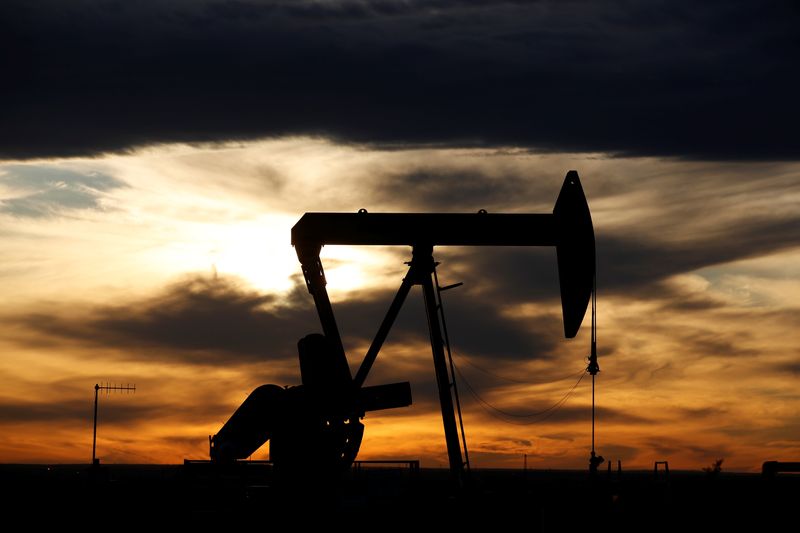By Arathy Somasekhar
HOUSTON (Reuters) - Oil climbed nearly 2% on Thursday as tensions between Russia and Ukraine were rapidly rising as the countries launched missiles at each other, worrying markets about crude supply if the conflict widened.
Russian President Vladimir Putin said on Thursday that Russia had launched a hypersonic medium-range ballistic missile attack on a Ukrainian military facility, and warned the West that Moscow could strike the military installations of any country whose weapons were used against Russia.
Putin said the West was escalating the conflict in Ukraine by allowing Kyiv to strike Russia with long-range missiles, and that the war was becoming a global conflict.
Ukraine fired U.S. and British missiles at targets inside Russia this week despite warnings by Moscow that it would see such action as a major escalation.
Brent crude futures rose $1.42, or 1.95%, to $74.23 per barrel, while U.S. West Texas Intermediate crude futures increased $1.35, or 2%, to $70.10.
"The market's focus has now shifted to heightened concerns about an escalation in the war in Ukraine," said Ole Hvalbye, commodities analyst at SEB.
Russia is the world's second-largest crude oil exporter after Saudi Arabia, so major disruptions could impact global supplies.
"For oil, the risk is if Ukraine targets Russian energy infrastructure, while the other risk is uncertainty over how Russia responds to these attacks," said ING analysts in a note.
Weighing on the market was a rise in U.S. crude inventories of 545,000 barrels to 430.3 million barrels in the week ended Nov. 15, exceeding analysts' expectations.
Gasoline inventories last week rose more than forecast, while distillate stockpiles posted a larger-than-expected draw, according to the Energy Information Administration data.
China on Thursday announced policy measures to boost trade, including support for energy product imports, amid worries over U.S. President-elect Donald Trump's threats to impose tariffs.
OPEC+ may push back output increases again when it meets on Dec. 1 due to weak global oil demand, said three OPEC+ sources familiar with the discussions.
The group, which combines the Organization of Petroleum Exporting Countries and allies like Russia, pumps around half the world's oil. It had initially planned to gradually reverse production cuts from late 2024 and through 2025.

Meanwhile, Chicago Federal Reserve President Austan Goolsbee on Thursday reiterated his support for further interest rate cuts and his openness to doing them more slowly.
Slower-than-expected interest rate cuts keep the cost of borrowing elevated in the meantime, which can slow economic activity and dampen demand for oil.